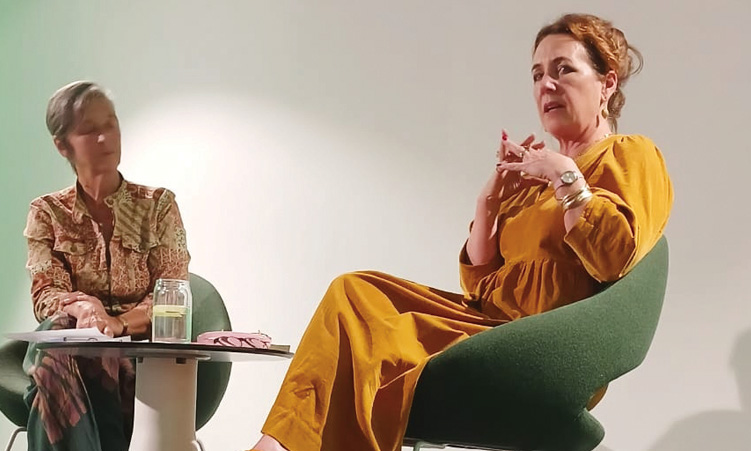South African journalist, activist and crime writer Margie Orford officially launched her memoir ‘Love and Fury’ last Tuesday at the Goethe-Institut in Windhoek.
The memoir, published by Jonathan Ball Publishers last month, chronicles Orford’s life, through memories of marriage, motherhood, divorce, depression, sexual assault, personal loss and working in the Namibian publishing industry.
It also highlights how these experiences influenced both her life and her writing, which she said she often uses to ask questions about life and the violence women experience at the hands of men surrounding them.
“Questions of power lie at the heart of my novels. Each one has started with a vision that comes to me in the form of a single close-up of two people caught, as if by a flashbulb, in a situation of dominance and submission,” she said.
Orford writes about her time living as a new mother in London, working on her master’s degree in New York, and about the work and research she did in Cape Town at the Rape Crisis Cape Town Trust, which ultimately led to Orford writing and publishing her first crime novel ‘Like Clockwork’ in 2006.
At the launch, Orford described writing her memoir as an “intense process”, as she was dealing with the sudden death of her sister, Melle, while writing the book.
“I could not open the manuscript for a year and a half. The first time I opened it, I threw up, literally, it was just too painful,” she said, adding that her editor at Jonathan Ball aided her in working on her memoir on a step-by-step basis until it was eventually completed.
Orford first got involved in the Namibian publishing industry in 1994, after she read a profile The Namibian had done on Jane Katjavivi, who was the founder of a small independent publishing house, New Namibia Books.
“Many people had died; thousands had fled the conflict, yet there had been no public reckoning of the atrocities of Namibia’s past. There were many wounds to heal, many stories to tell,” Orford wrote.
Her work at New Namibia Books took Orford all over Namibia, distributing textbooks for the new curriculum.
In 1995, New Namibia books started a collection titled ‘Coming On Strong’, which featured stories of interrogation, rape, assault, beatings and bombings, but also of love, reunions and motherhood, from women all over a newly independent Namibia.
“These women’s words became an authoritative part of Namibia’s historical records. The war I’d known from a safe, white distance was made vivid by these eyewitness accounts,” wrote Orford.
It was through this collection that she met Ellen Namhila, which led to the publication of one of Namibia’s most well-known books, ‘The Price of Freedom’, in 1997.
“Writing does not only illuminate; it can also heal writer and reader by connecting them. I hugged Ellen’s memoir to my chest. She taught me that a woman publicly bearing witness to her own experience is a political act,” she wrote.
Stay informed with The Namibian – your source for credible journalism. Get in-depth reporting and opinions for
only N$85 a month. Invest in journalism, invest in democracy –
Subscribe Now!







